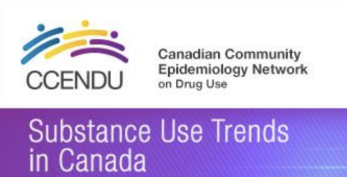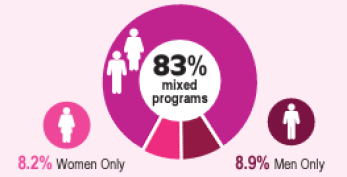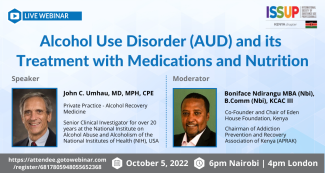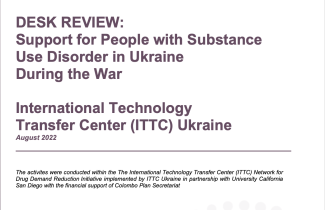Search
Treatment
Applying interventions designed to reduce and manage the symptoms of substance use disorders.
Associated Factors of Care Continuity among People Who are Addicted to Psychoactive Substances at the "La Vie" Center and Jamot Hospital in Yaounde
Purpose: The main objective of this study was to determine the associated factors of care continuity among people who are addicted to psychoactive substances at the "La Vie" Center and Jamot hospital in Yaounde.
Problem: The management of...
Coping with Life After Prison
Psychologists are playing pivotal roles in reentry programs, but more research and investment are needed to help incarcerated individuals build successful lives after leaving prison.
This article, published in the American Psychological...
General Principles of Contingency Management for Smoking Cessation
Contingency management (CM) is a psychological treatment based on operant conditioning. It consists of providing incentives in exchange for achieving a target behaviour such as abstinence or other treatmentrelated variables (e.g. session...
Global trends in opioid medicine availability
This webinar presented the latest global and regional trends in the use of opioid analgesics and explore issues related to availability.
Around the world the consumption of opioid analgesics has been increasing, yet millions of people...
A new model of Couples Treatment for Addiction
This Webinar examines a new model of couples treatment for addiction.
The model includes new aspects in the treatment, related to relationship reparation/ forgiveness and aspects of Emotionally-focused couple therapy.
The presentation...
Grief: Helping Someone Else in the Aftermath of Loss
In the wake of loss, it can be hard to take care of those you care about who are grieving. As with self-care, there are many possible ways to offer support to someone who is grieving, and a variety of factors that affect how you can offer...
Grief: Taking Care of Yourself in the Aftermath of Loss
This factsheet, published by the National Centre for PTSD, discusses the ways in which we can engage in self-care in the wake of loss.
The factsheet provides an overview of grief and some of the theories and processes that are associated...
International Standards on prevention: What Schools Should Know
NIDA Research Priorities
How to Inform Policy and Decision Makers About Evidence-Based Substance Use Policy and Prevention
How to Inform Policy and Decision Makers About Evidence-Based Substance Use Policy and Prevention.
Matej Košir
2022-2026 NIDA Strategic Plan
Overview
This strategic plan reflects NIDA’s commitment to advancing all aspects of addiction science - from basic to translational, clinical, and health services research - in the service of enhancing fundamental knowledge and improving...
Alternatives to Conviction or Punishment Available for People Who Use Drugs
Substance/drug use disorders are multifactorial and biopsychosocial health disorders, associated with additional health problems, socio-economic inequalities, violence, criminal behaviour and social exclusion. In addition to the public...
Treatment of Drug Use Disorders and Associated Mental Health Disorders in Prison Settings and Forensic Hospitals
This discussion paper was prepared by UNODC following various requests from the Member States for technical assistance on the treatment of drug use disorders and associated mental health disorders in prison settings.
This effort is related...
Alcohol Use Disorder and its Treatment with Medications and Nutrition
Bi-Monthly Webinar: ISSUP Nigeria Knowledge Update Series (Fourteenth Session)
The Importance of Maintaining Boundaries Within Clinician/Client Relationships
For behavioral health providers, the effectiveness of clinical work is dependent upon the clinician/client relationship. When appropriate boundaries are not maintained, it is these same relationships that can be at the root of serious...
Introduction to Supervision of Peer Based Recovery Support Services
As many people know, the professional identity of peer staff is rooted in their lived experience and deep connection to personal vulnerabilities. What is not often talked about or addressed are the imbalances that many peers face in the...
Concurrent Treatment of PTSD and Substance Use Disorders Using Prolonged Exposure (COPE): Therapist Guide (Treatments That Work)
Concurrent Treatment of PTSD and Substance Use Disorders Using Prolonged Exposure (COPE) is a cognitive-behavioral psychotherapy program designed for patients who have posttraumatic stress disorder (PTSD) and a co-occurring alcohol or drug...
PTSD Consultation Program: Lecture Series
On the third Wednesday of each month, the PTSD Consultation Program hosts a webinar on a topic relevant to treating PTSD. Topics are selected based on questions providers are bringing to the PTSD Consultation Program and invite an expert in...
DESK REVIEW: Support for People with Substance Use Disorder in Ukraine During the War
Summary
War in Ukraine has inevitably led to the country's health system functioning at reduced capacity. Attacks near hospitals and active military operations force people to change their place of residence and flee from the war to safer...
Share the Knowledge: ISSUP members can post in the Knowledge Share – Sign in or become a member







